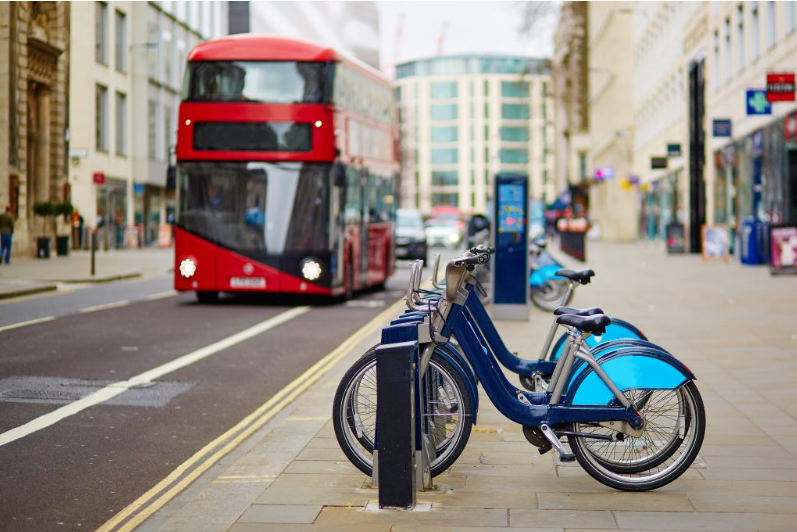How to Reduce Your Carbon Footprint in the UK: Practical Tips for a Greener Future

- Switch to Renewable Energy
The energy we use at home is a major contributor to carbon emissions. Switching to a renewable energy provider, such as wind or solar power, can significantly reduce your household emissions. Many UK energy suppliers now offer green tariffs, so check if you can make the switch to cleaner energy today.
- Use Public Transport, Walk, or Cycle
Transport accounts for a large chunk of the UK’s carbon emissions. Opting for public transport—trains, buses, and trams—is a more energy-efficient choice than driving. Walking or cycling are great alternatives if you live in a city or town, not only reducing emissions but also offering health benefits.
If driving is necessary, consider making the switch to an electric vehicle (EV). The UK government offers incentives like grants for EVs and charging points to make the transition more affordable.
- Embrace a Plant-Based Diet
The food we eat has a significant impact on the environment, with meat and dairy production being major sources of greenhouse gases. Reducing your meat consumption—even by a small amount—can lower your carbon footprint. Consider trying plant-based meals more often and buy locally sourced, seasonal produce to reduce the environmental impact of food transportation.
- Reduce, Reuse, and Recycle
Waste management is crucial to reducing emissions. By reducing the amount of waste you create, reusing items, and recycling, you can help lower the amount of energy required to produce new products. Buy products with minimal packaging, use reusable shopping bags, and donate or repurpose items instead of discarding them.
- Improve Energy Efficiency at Home
Energy-efficient homes contribute significantly to reducing carbon footprints. Insulating your home keeps it warmer in winter and cooler in summer, reducing the need for heating and cooling. Upgrading to energy-efficient appliances, such as LED lightbulbs, energy-rated boilers, and fridges, also makes a difference. If possible, consider installing a smart thermostat to help manage heating more efficiently.
Another long-term investment to consider is upgrading your heating system. Air-source heat pumps, for instance, offer a more sustainable alternative to traditional boilers.
- Conserve Water
Although water use might seem unrelated to carbon emissions, it actually takes energy to pump, treat, and heat water. You can reduce your water consumption by taking shorter showers, fixing leaks, and using water-efficient devices like low-flow showerheads. Running dishwashers and washing machines with full loads also helps cut down on both water and energy usage.
- Choose Sustainable Fashion
The fashion industry is one of the largest polluting industries globally, contributing heavily to carbon emissions. By buying fewer, high-quality clothes that last longer, and opting for secondhand items, you can reduce your impact. Look for brands that prioritize sustainable materials and ethical manufacturing processes to further reduce your carbon footprint.
- Opt for Digital Over Paper
Digital communication is not only more efficient, but it also helps reduce paper waste. When possible, opt for digital versions of documents, bills, and communication. If printing is necessary, use recycled paper, and be sure to recycle it afterward. Many UK companies offer paperless billing, so take advantage of this option to reduce paper usage.
- Support Local and Sustainable Businesses
By choosing to buy from local and sustainable businesses, you support companies that prioritize environmental care. Local goods typically have a smaller carbon footprint due to reduced transportation emissions. Opt for products made from recycled or sustainable materials, and try to support businesses that are committed to reducing their carbon impact.
- Advocate for Climate Action
While individual actions matter, larger systemic changes are crucial to tackling climate change. Support policies that encourage renewable energy, greener public transport, and carbon-reduction initiatives. Vote for candidates who prioritize climate action and get involved in local environmental campaigns to amplify your impact.
Conclusion
Reducing your carbon footprint in the UK doesn’t require major lifestyle changes—it’s about making smarter, more sustainable choices in everyday life. Whether you’re switching to renewable energy, reducing meat consumption, or using public transport, every step helps. By embracing these strategies, you can contribute to a greener future while supporting the UK’s goal of achieving net zero carbon emissions by 2050. Small changes, collectively, can make a big difference.